The US Justice Department announced the indictment of Venezuelan President Nicolás Maduro on Thursday for "narco-terrorism" and offered US$15 million for information leading to his capture.
In an extremely rare criminal case brought against a foreign head of state, the department accused Maduro of being the leader of a cocaine trafficking group called "The Cartel of the Suns."
Maduro effectively converted Venezuela into a criminal enterprise at the service of drug-traffickers and terrorist groups as he and his allies stole billions from the South American country, prosecutors charged in several indictments made public Thursday.
Investigators say the organisation worked hand-in-hand with the rebel Revolutionary Armed Forces of Colombia (FARC), which the United States has labelled a "terrorist organization," to export hundreds of tonnes of drugs a year.
Maduro, Venezuela's president since 2013, and other top regime officials are alleged to have used cocaine as a "weapon" to flood the US over the past two decades.
The US State Department announced 18 indictments of Maduro and 14 other current and former officials, saying it was targeting broad corruption at the top of a government it blames for the South American country's desperate poverty.
"For more than 20 years, Maduro and a number of high-ranking colleagues allegedly conspired with the FARC, causing tons of cocaine to enter and devastate American communities," said Attorney General Bill Barr.
"It's time to call out this regime for what it is," he added. "The Maduro regime is awash in corruption and criminality."
Maduro blasted back by accusing the US and Colombia of “giving orders to flood Venezuela with violence.”
“As head of state, I am obligated to defend peace and the stability of our homeland given any circumstance that arises,” he tweeted.
As the indictments were announced, US Secretary of State Mike Pompeo said the US State Department would offer cash rewards of up to US$55 million for information leading to the arrests or convictions of Maduro and his associates. It offered rewards up to US$15 million for Maduro and up to US$10 million each for the others.
- 'Cartel of the Suns' -
Barr underscored that the United States no longer recognises Maduro as Venezuela's legitimate leader, and referred to him as the "former president."
Barr and Elliott Abrams, the State Department’s special envoy on Venezuela, are driving the hawkish US stance toward Maduro much as they pushed for Noriega’s ouster in the late 1980s — Barr as a senior Justice Department official and Abrams as assistant secretary of state for Latin America.
The US Justice Department alleges that Maduro and regime figures supported a breakaway group of the FARC along the Colombian-Venezuelan border that has been involved in drug-trafficking since 1999.
It said that four others indicted in New York – a former National Assembly speaker, defence minister, military intelligence head and general – were part of the operation.
They acted alongside Maduro as "leaders and managers" of the "Cartel of the Suns," the department said in a statement.
The name refers to sun insignias on the uniforms of senior Venezuelan military officials, according to the Justice Department.
One indictment by prosecutors in New York accused Maduro and socialist party boss Diosdado Cabello, head of the rubber-stamping Constitutional Assembly, of conspiring with Colombian rebels and members of the military “to flood the United States with cocaine” and use the drug trade as a “weapon against America.”
Criminal acts to advance a drug and weapons conspiracy that prosecutors contend dates back to the start of Hugo Chávez's revolution in 1999 occurred as far afield as Syria, Mexico, Honduras and Iran, the indictment alleged.
Maduro, who was vice-president and foreign minister in the Chávez government before 2013, allegedly negotiated and coordinated shipments of FARC-produced cocaine, directing the cartel to provide weapons to the FARC.
The shipments to the United States ran up to 250 tonnes a year, according to the indictments.
"Maduro and the other defendants expressly intended to flood the United States with cocaine in order to undermine the health and wellbeing of our nation," said New York Federal District Attorney Geoffrey Berman.
"Maduro very deliberately deployed cocaine as a weapon," he added.
- 'Corrupt' judge -
The indictments included updated charges against Vice-President Tareck Aissami, whom Washington has already designated a drug-trafficker, and the country's Supreme Court Chief Justice Maikel Moreno.
Moreno was charged in Miami with money-laundering related to bribes he allegedly took "to illegally fix dozens of civil and criminal cases in Venezuela," the Justice Department said.
It alleged that he took a percent of the proceeds for ruling in favuor of the government's 2017 seizure and sale of General Motors' US$100-million auto plant to local businessmen.
According to the charges Moreno laundered US$3 million into his US bank accounts between 2012 and 2016, using it to charter private aircraft and for US$600,000 in luxury shopping sprees.
Despite that, the Justice department said, Moreno reported in his US visa application that he only had a salary of US$12,000 a year.
US Attorney Ariana Fajardo Orshan said southern Florida was a preferred destination for Venezuelans stashing corrupt money abroad, and that authorities had in recent years seized some US$450 million in cases lodged against Maduro regime officials.
Two FARC leaders, a former energy minister, former senior national guard and anti-drug officials were indicted over allegations ranging from sanctions violations to drug trafficking.
Maduro and his four lieutenants could face a minimum of 10 years and a maximum of life terms, if they can be tried.
Tensions
The shock indictment of a functioning head of state is highly unusual and is bound to ratchet up tensions between Washington and Caracas as the spread of the coronavirus threatens to collapse Venezuela's health system and oil-dependent economy driven deep into the ground by years of corruption and US sanctions. Maduro has ordered Venezuelans to stay home to try to stave off the spread of the virus that officials say has infected 106 people.
Analysts said the indictments could boost US President Donald Trump’s re-election chances in the key swing state of Florida, which he won by a narrow margin in 2016 and where Venezuelans, Cubans and Nicaraguans fleeing authoritarian regimes have political muscle.
But its unclear how it brings Venezuela any closer to ending a 15-month standoff between Maduro, who has the support of Russia and China, and the US-backed opposition leader Juan Guaidó. It also could fragment the Lima Group, the US-led coalition against Maduro, if European and Latin American allies think the Trump administration is overreaching.
“This kind of action does nothing to help a negotiated solution — something that’s already really difficult,” said Roberta Jacobson, who served as the State Department’s top diplomat for Latin America until 2018.
– TIMES/AFP/AP











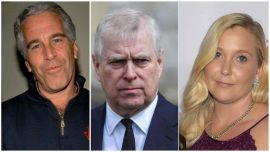

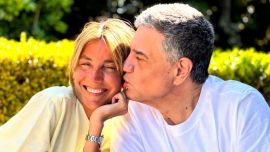






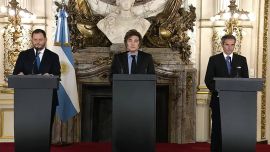
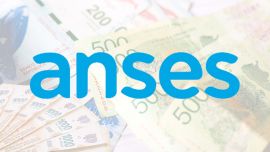

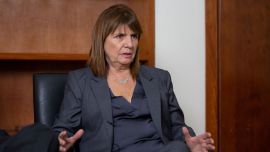
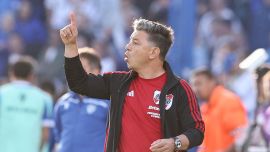
Comments